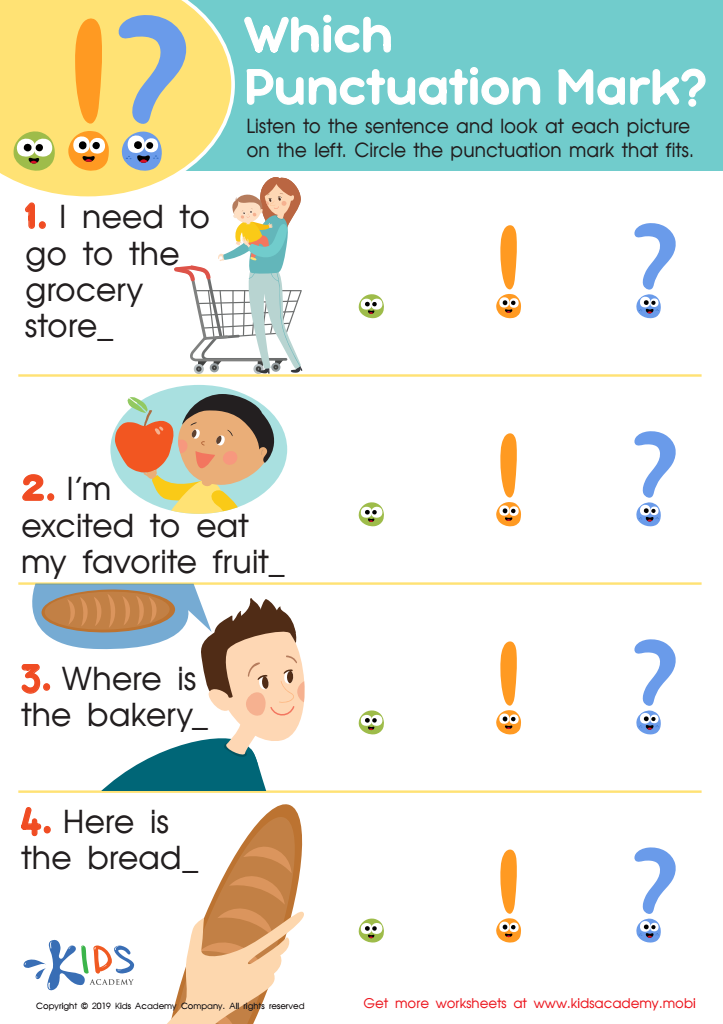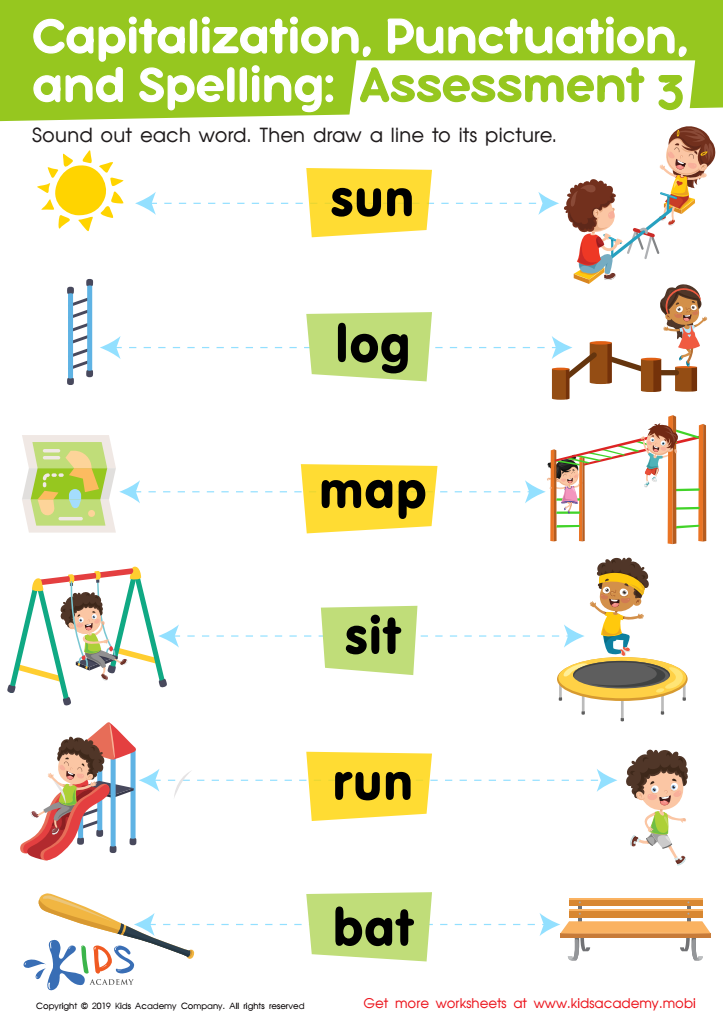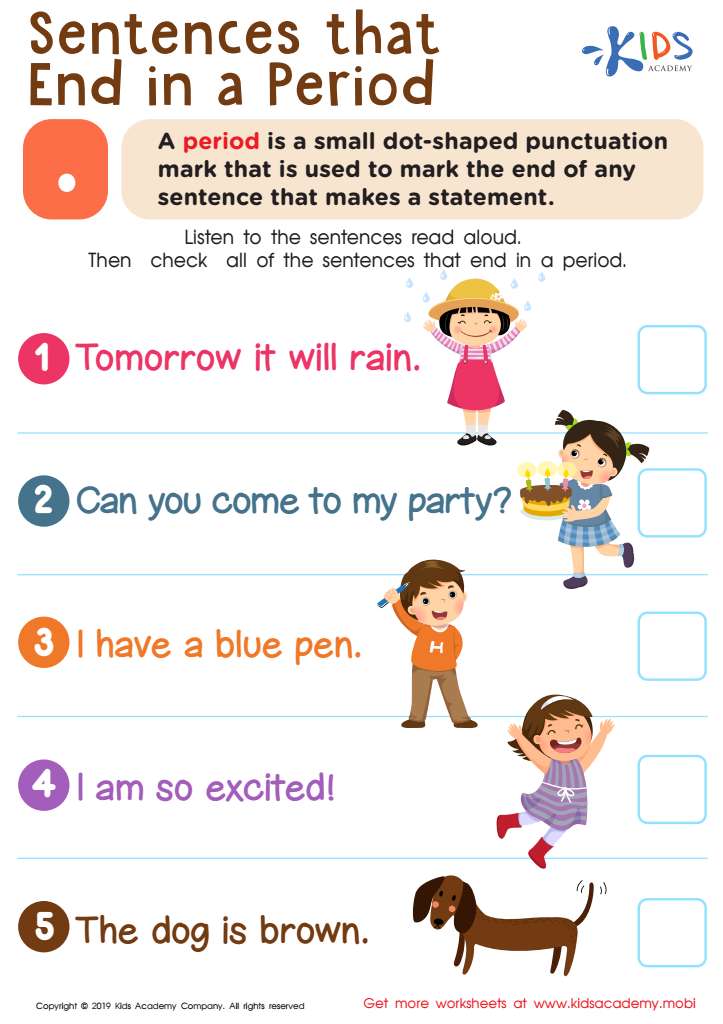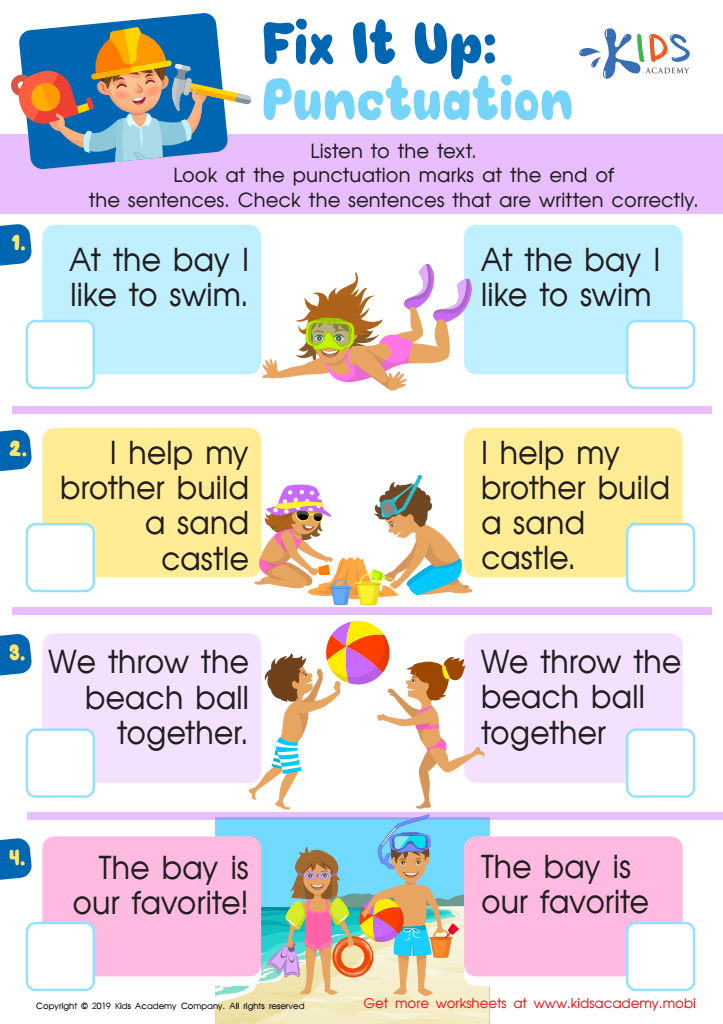Punctuation understanding Worksheets for 4-Year-Olds
4 filtered results
-
From - To
Enhance your child's early literacy skills with our engaging Punctuation Understanding Worksheets designed for 4-year-olds. These printable resources from Kids Academy introduce basic punctuation marks through fun and interactive activities. With colorful illustrations and child-friendly exercises, young learners will gain fundamental knowledge of periods, question marks, exclamation points, and more. Each worksheet is crafted to improve attentiveness, fine motor skills, and early reading comprehension. Foster a love for learning and build a strong foundation in writing with our expertly designed punctuation worksheets tailored to make learning enjoyable for preschoolers. Promote early academic success today!


Which Punctuation Mark Worksheet


Capitalization. Punctuation. Spelling. Assessment 3 Worksheet


Sentences That End in a Period Worksheet


Fix Punctuation Worksheet
Understanding punctuation at an early age is crucial for young children's language development, and parents or teachers should be invested in this aspect for several reasons. First, punctuation aids in comprehension. For four-year-olds who are just beginning to read and write, proper punctuation helps them make sense of sentences and narratives. It clarifies the structure and uncovers the meaning behind words, fostering better reading comprehension and communication skills.
Second, learning punctuation rules early sets the foundation for accurate written expression. Even at a young age, practicing with periods, question marks, and capital letters enables children to form coherent, understandable sentences. This basic grasp of punctuation can significantly enhance their writing skills as they progress in school.
Third, exposure to punctuation marks helps build attention to detail and critical thinking. By recognizing how a simple comma or period can change a sentence's meaning, children become more thoughtful and meticulous readers and writers.
Lastly, understanding punctuation aligns with cognitive development stages found in early childhood education standards. It gives young learners the tools to express their thoughts clearly and confidently, setting them up for long-term academic success. Hence, parents and teachers should prioritize punctuation understanding to cultivate motivated, effective communicators.

 Assign to My Students
Assign to My Students





















